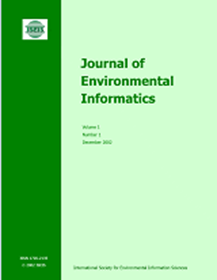Optimization Models for Long-Term Planning of Municipal Solid Waste Management Systems: A Review with An Emphasis on Mass Balances
IF 5.4
1区 环境科学与生态学
Q1 ENVIRONMENTAL SCIENCES
引用次数: 0
Abstract
The vast majority of decision-making approaches used for long-term planning of municipal solid waste management systems (LPMSWMS) are ground on scenario-based structures. However, the scenario-based structures may overlook many real-world possibilities because of their restricted mass balances. This study is the first attempt to review the current state of optimization models, which are used as a decision-making approach for LPMSWMS, by focusing on the mass balances. In line with this purpose, 146 peer-reviewed articles were examined based on a new literature evaluation scheme. According to the findings, it can be stated that a significant majority of the articles offer non-deterministic optimization models dealing with the uncertain nature of the LPMSWMS problems. Considering all optimization models examined in the study, most of the model formulations have linear mathematical forms in terms of objective and constraint functions. However, it is quite interesting that none of the models produced solutions for a management system alternative with an integrated (non-restricted) mass balance. Accordingly, it is very questionable whether the results obtained from the current models have the power to give the most suitable solution for an up-to-date management system. As a result of the review, it is highly recommended that the optimization models to be conducted for the LPMSWMS in the future should search for new mathematical approaches considering the integrated mass balances under certainty and/or uncertainty.城市固体废物管理系统长期规划的优化模型:以质量平衡为重点的综述
绝大多数用于城市固体废物管理系统(LPMSWMS)长期规划的决策方法都是基于情景结构的。然而,由于其质量平衡受到限制,基于情景的结构可能会忽略现实世界中的许多可能性。本研究首次尝试以质量平衡为重点,回顾作为 LPMSWMS 决策方法的优化模型的现状。为此,根据新的文献评估方案,对 146 篇同行评审文章进行了审查。根据研究结果,可以说绝大多数文章都提供了非确定性优化模型,以处理 LPMSWMS 问题的不确定性。从研究中考察的所有优化模型来看,大多数模型的目标函数和约束函数都是线性数学形式。然而,有趣的是,没有一个模型能够为具有综合(非限制性)质量平衡的管理系统备选方案提供解决方案。因此,从现有模型中得出的结果是否能够为最新的管理系统提供最合适的解 决方案,是非常值得怀疑的。根据审查结果,强烈建议今后为 LPMSWMS 建立优化模型时,应寻找新的数学方法, 考虑确定性和/或不确定性条件下的综合质量平衡。
本文章由计算机程序翻译,如有差异,请以英文原文为准。
求助全文
约1分钟内获得全文
求助全文
来源期刊

Journal of Environmental Informatics
ENVIRONMENTAL SCIENCES-
CiteScore
12.40
自引率
2.90%
发文量
7
审稿时长
24 months
期刊介绍:
Journal of Environmental Informatics (JEI) is an international, peer-reviewed, and interdisciplinary publication designed to foster research innovation and discovery on basic science and information technology for addressing various environmental problems. The journal aims to motivate and enhance the integration of science and technology to help develop sustainable solutions that are consensus-oriented, risk-informed, scientifically-based and cost-effective. JEI serves researchers, educators and practitioners who are interested in theoretical and/or applied aspects of environmental science, regardless of disciplinary boundaries. The topics addressed by the journal include:
- Planning of energy, environmental and ecological management systems
- Simulation, optimization and Environmental decision support
- Environmental geomatics - GIS, RS and other spatial information technologies
- Informatics for environmental chemistry and biochemistry
- Environmental applications of functional materials
- Environmental phenomena at atomic, molecular and macromolecular scales
- Modeling of chemical, biological and environmental processes
- Modeling of biotechnological systems for enhanced pollution mitigation
- Computer graphics and visualization for environmental decision support
- Artificial intelligence and expert systems for environmental applications
- Environmental statistics and risk analysis
- Climate modeling, downscaling, impact assessment, and adaptation planning
- Other areas of environmental systems science and information technology.
 求助内容:
求助内容: 应助结果提醒方式:
应助结果提醒方式:


